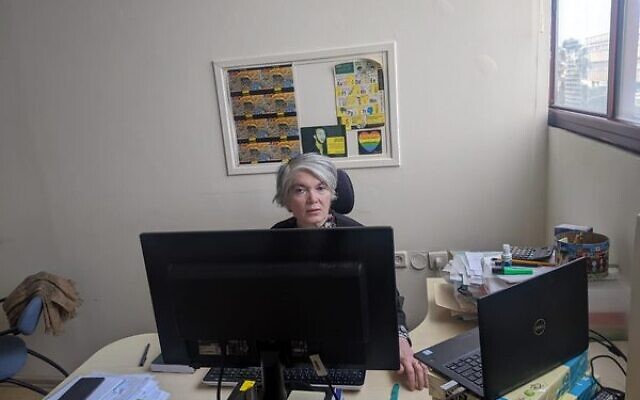Amnesty Israel chief slams ‘apartheid’ report
The report used broad strokes to paint the entire country in one colour rather than going into detail on what needs to change and what is being done correctly.
THE executive director of Amnesty International Israel has sharply criticised the umbrella international organisation over its report earlier this month that accused Israel of practising apartheid against the Palestinians, saying the document is not helping the situation, and may even be making things worse.
In an interview with Zman Yisrael, The Times of Israel’s Hebrew-language sister site, Molly Malekar described the accusation that Israel engages in apartheid, as well as other elements of the report, as a “punch to the gut”.
According to Malekar, many others who campaign for Palestinian rights, both in Israel and in the West Bank, feel the same way.
Malekar said that what bothered her most was not the claim that Israel engages in apartheid according to international law, about which, she said, there is a “serious debate”. Rather, she said, Amnesty, as an organisation whose goal is to promote human rights, shouldn’t be concerning itself with theoretical definitions.
When Amnesty publishes a paper, “the only important question is what are you trying to achieve by it,” she said.
Malekar said she had stressed to Amnesty administrators and branches in other countries that within Israel there was a struggle between “nationalist forces and humanitarian forces”.
But the report used broad strokes to paint the entire country in one colour rather than going into detail on what needs to change and what is being done correctly, she claimed. As a result, she said, the report obfuscates the work by humanitarian activists in the country who are deserving of recognition, and prevents dialogue.
Malekar also criticised Amnesty’s attitude toward Arab Israelis who identify as Palestinian.
“They are treated as perpetual, passive victims of apartheid, devoid of any rights and agency,” she said. “[Amnesty] turns them into victims, into an object. This is neither true nor helpful.
“There is discrimination against Palestinian citizens of Israel, but they have rights, some in key positions; they are campaigning and influencing, and this should be recognised, appreciated and encouraged.”
However, Malekar rejected the idea that Amnesty was biased against Israel, noting that the group has published hundreds of reports on human rights abuses in Arab countries, including in the territories claimed by the Palestinians for a future state and in Iran.
In addition, she stated, a significant portion of the report on Israel and the West Bank dealt with Palestinian human rights abuses against Israel, such as terror attacks and rocket fire, that Amnesty defines as war crimes.
Nonetheless, Malekar said she understands the anger at the way Amnesty framed the situation in Israel and acknowledged that in the recent report, “It stands out, it has been exaggerated.”
And while she refuted what she called “demagogic” allegations that Amnesty was antisemitic, asserting that criticism of Israel, even if it is wrong, is not antisemitism, she took issue with how Amnesty International relates to antisemitism, saying “Amnesty is supposed to fight antisemitism. It does, but not enough, and sometimes I feel that it needs to be pressured into action.”
She speculated that Amnesty International shies away from addressing antisemitism because it is concerned it will then be perceived as pro-Israel.
“This is completely wrong,” she said. “Israel and world Jewry are not one and the same.”
TIMES OF ISRAEL


comments